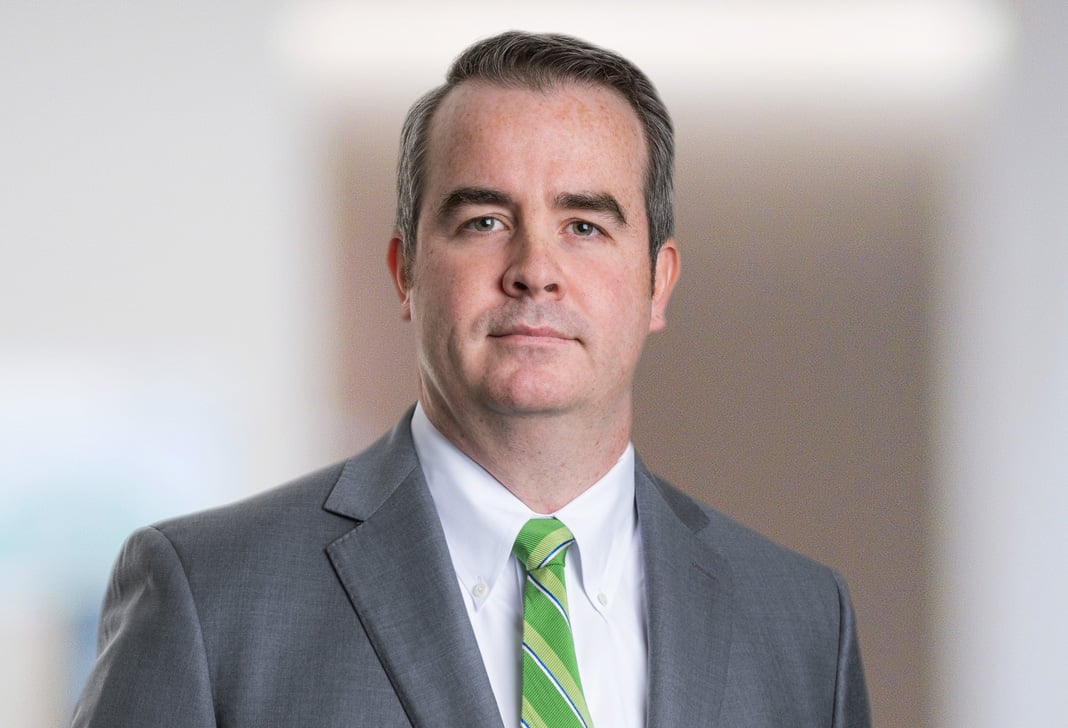
Business Restructuring Review Vol. 23 No. 3 | May-June 2024
In This Issue:
Ability of Creditors' Committees to Prosecute Estate Claims Given a Boost in Delaware Bankruptcy Courts
In In re Pack Liquidating, LLC, 2024 WL 409830 (Bankr. D. Del. Feb. 2, 2024), the U.S. Bankruptcy Court for the District of Delaware ruled that, in accordance with Third Circuit precedent, the Bankruptcy Code, rather than state law, determines whether a creditors' committee can be conferred with "derivative standing" to prosecute claims on behalf of a bankruptcy estate. The bankruptcy court distinguished between derivative actions in bankruptcy cases and state-law derivative actions as "simply two different kinds of creatures." It held that any state law purporting to abridge the power of a bankruptcy court to confer derivative standing upon a committee or creditor in an appropriate case is preempted. The court accordingly granted the motion of a creditors committee to prosecute estate breach of fiduciary claims despite a provision in Delaware law limiting derivative standing to the members or assignees of a Delaware limited liability company. [read more …]
Fifth Circuit: Recent U.S. Supreme Court Ruling Did Not Alter Mootness Requirements for Unstayed Bankruptcy Sale Orders
In Matter of Fieldwood Energy LLC, 93 F.4th 817 (5th Cir. 2024), the U.S. Circuit Court for the Fifth Circuit addressed the impact of the Supreme Court's decision in MOAC Mall Holdings LLC v. Transform Holdco LLC, 598 U.S. 288 (2023) ("Transform Holdco"), on the application of section 363(m) of the Bankruptcy Code to bar an appeal of an unstayed order approving a bankruptcy asset sale. The Fifth Circuit affirmed lower court rulings dismissing under section 363(m) an appeal filed by certain sureties whose subrogation rights were canceled as part of a "free and clear" bankruptcy asset sale that was the cornerstone of a chapter 11 plan because the sureties failed to obtain a stay pending appeal. According to the Fifth Circuit, "Section 363(m) is alive and well" after Transform Holdco. Because the sureties did not obtain stay pending appeal, and the cancellation of the subrogation right was "an integral" part of the sale transaction, the appeal was foreclosed by section 363(m). [read more …]
Delaware Bankruptcy Court: "Center of Main Interests" for Purposes of Chapter 15 Recognition Must Be Determined on Debtor-by-Debtor Rather than Enterprise Group Basis
In In re Black Press Ltd., No. 24-100044 (MFW) (Bankr. D. Del. Feb. 14, 2024) (unpublished order), the U.S. Bankruptcy Court for the District of Delaware denied a petition for chapter 15 recognition of a Canadian bankruptcy proceeding commenced for the U.S. subsidiaries of a Canadian enterprise group. It concluded that in a case involving multiple enterprise group debtors, the court must examine each debtor's "center of main interests" ("COMI") separately, rather than the enterprise group as a whole, for purposes of chapter 15 recognition. In so ruling, the court found, among other things, that the U.S. debtors' guarantee of their Canadian parent company's debts was an insufficient basis to conclude that the U.S. debtors' COMI was located in Canada, or that the U.S. debtor's even maintained an "establishment" in Canada. [read more …]
Fifth Circuit: Preference Claims Are Property of the Bankruptcy Estate that Can Be Sold
In Matter of South Coast Supply Co., 91 F.4th 376 (5th Cir. 2024), the U.S. Court of Appeals for the Fifth Circuit considered whether causes of action that become part of the bankruptcy estate in connection with a bankruptcy case (e.g., fraudulent transfer, preference, or other litigation claims) may also be sold or assigned by a trustee or chapter 11 debtor-in-possession during bankruptcy to generate value. The court of appeals joined the Eighth and Ninth Circuits in concluding that avoidance actions (in this case, a preference claim) are property of the estate that can be sold to creditors as a means of generating value. [read more …]
Cayman Islands Branch of FDIC-Insured U.S. Bank Ineligible for Chapter 15 Relief
In In re Silicon Valley Bank (Cayman Islands Branch) (in Official Liquidation), 2024 WL 734735 (Bankr. S.D.N.Y. Feb. 22, 2024), the U.S. Bankruptcy Court for the Southern District of New York examined the Bankruptcy Code's eligibility requirements for chapter 15 debtors in ruling on a petition for chapter 15 recognition of a Cayman Islands liquidation proceeding filed with respect to the Caymans branch of a failed U.S. bank. The court denied the petition for chapter 15 recognition, ruling that the branch bank was not eligible for chapter 15 relief because "[i]t possessed no separate legal existence outside of the [U.S. bank], which was indisputably U.S.-incorporated and ineligible for bankruptcy relief … as a domestic [Federal Deposit Insurance Corporation ("FDIC")]-insured bank." The court also held that the U.S. bank's closure and the commencement of an FDIC receivership for it did not result in the "transmogrification" of the U.S. bank or the branch bank into an entity eligible for bankruptcy. [read more …]
Third Circuit Updates Its Standard for Granting Comity to Foreign Bankruptcy Proceedings
In Vertiv, Inc. v. Wayne Burt PTE, Ltd., 2024 WL 371924 (3d Cir. Feb. 1, 2024), the U.S. Court of Appeals for the Third Circuit vacated a U.S. district court ruling dismissing litigation against a company that was a debtor in liquidation proceedings in Singapore because the Third Circuit concluded that the district court had misapplied the standard for "adjudicatory" comity under relevant, albeit outdated, precedent. In so ruling, the Third Circuit "updated" its nearly-three-decades-long guidance regarding deference under principles of comity to a foreign bankruptcy proceeding and articulated a "refreshed" standard for adjudicatory comity. [read more …]
Newsworthy
Jones Day received a global-wide practice ranking in the practice area Restructuring/Insolvency in the 2024 edition of Chambers Global: The World's Leading Lawyers for Business.
Jones Day was among the "Client Service 30" in BTI Consulting Group's annual survey of law firms providing superior client service.
Oliver S. Zeltner (Cleveland) and Dan T. Moss (Washington and New York) received a 2024 Readers Choice Award from content aggregator JD Supra in the field of Bankruptcy.
Heather Lennox (Cleveland and New York) received a Band 3 ranking in Bankruptcy/Restructuring by Chambers Global USA for 2024.
Corinne Ball (New York) was among the "Senior Statespeople" named in the 2024 edition of Chambers USA in the field of Bankruptcy/Restructuring.
Bruce Bennett (Los Angeles) received a Band 1 ranking in the field of Bankruptcy/Restructuring in the 2024 edition of Chambers Global: The World's Leading Lawyers for Business.
Jasper Berkenbosch (Amsterdam), Fabienne Beuzit (Paris), Ben Larkin (London), and Juan Ferré (Madrid) were ranked in the field of Restructuring/Insolvency in Chambers Europe 2024.
The 2025 edition of Best Lawyers in Australia recognized Roger Dobson (Sydney) and Katie Higgins (Sydney). Roger is recognized for his contributions in Banking and Finance Law; Distressed Investing and Debt Trading; Insolvency and Reorganization Law and Litigation. Katie is recognized for her contributions in Banking and Finance Law; Insolvency and Reorganization Law; and Litigation.
Fabienne Beuzit (Paris) and Juan Ferré (Madrid) were among the Leading Individuals ranked in the 2024 edition of The Legal 500 EMEA guide in the field of Restructuring and Insolvency.
On April 16, 2024, Thomas M. Wearsch (New York and Cleveland) participated in a webinar panel discussion jointly sponsored by the Chicago-Midwest, Detroit, and Germany chapters of the Turnaround Management Association regarding "Cross-border Automotive Restructuring."
An article written by Corinne Ball (New York) titled "Has the Seventh Circuit Opened the Door for Distressed Investors Through Limiting the Risk of Failed LBOs or Other Stock Sales?" was published in the April 24, 2024, edition of the New York Law Journal.
An article written by Oliver S. Zeltner (Cleveland) titled "Third Circuit: Bankruptcy Court Lacks Discretion to Deny Examiner Appointment Motion in Large Chapter 11 Cases" was published on April 21, 2024, in Lexis Practical Guidance.
An article written by Dan B. Prieto (Dallas) and Richard H. Howell (Washington) titled "Texas Bankruptcy Court: Debtor's Non-Economic Rights Under LLC Agreement Are Estate Property Protected by Automatic Stay" was published on April 21, 2024, in Lexis Practical Guidance.
An article written by Mark A. Cody (Chicago) titled "Changes to Confirmed Toggle Chapter 11 Plan Required No Additional Disclosure and Voting Where Creditors' Rights Not Materially and Adversely Affected" was published on April 22, 2024, in Lexis Practical Guidance.
Lawyer Spotlight: Jasper Berkenbosch
Jasper Berkenbosch, a partner in the Business Restructuring & Reorganization Practice in the Amsterdam Office, advises companies in distress and funds and creditors on bankruptcy-related liability matters. Jasper has represented high-profile companies in successful debt restructuring, including Diebold Nixdorf in a $2.7 billion debt restructuring under Dutch restructuring law and chapter 11 of the U.S. Bankruptcy Code, and the Vroon Group shareholders in a €1 billion debt restructuring under Dutch law and the UK schemes of arrangement.
Jasper has handled court appointments for Mercom Coffee Group as observer, monitoring the global winding up under Dutch law and chapter 11 of the U.S. Bankruptcy Code; bankruptcy trustee for Scotch & Soda, an international fashion retail company, leading the distressed assets sale in 13 countries; bankruptcy trustee for Intertoys, a retail chain with 350 toy stores in Europe; and bankruptcy trustee for Oi Brazil Coop in restructuring of $6 billion bond debt.
In addition, Jasper is regularly appointed by the Dutch Enterprise Chamber as an independent director, supervisor, or investigator in proceedings for international companies such as Esperaza, ICTS, De Poli Tankers, and Teka








